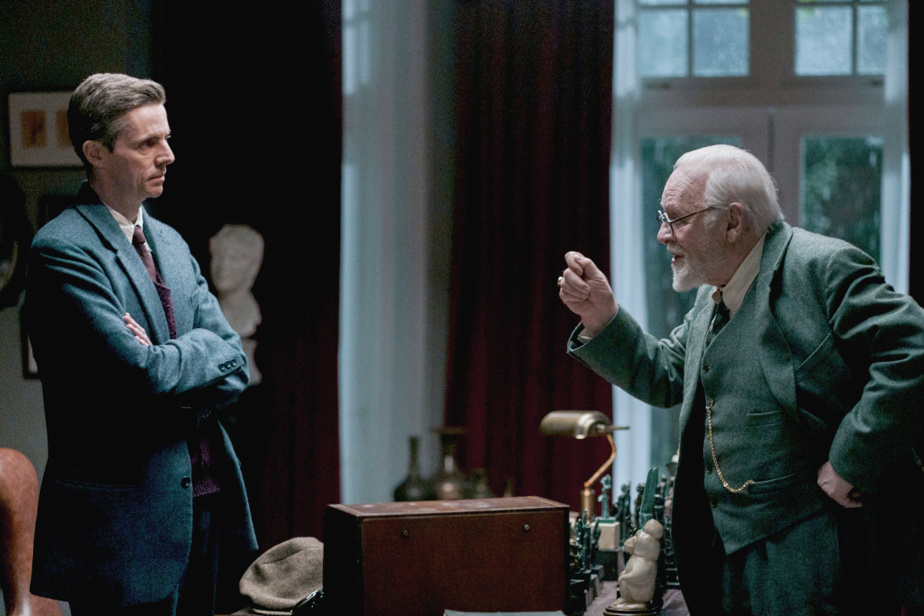A few weeks before his suicide assisted by Dr. Max Schur (Peter Warnock), 83-year-old Sigmund Freud (Anthony Hopkins), suffering from jaw cancer, reportedly met an Oxford academic at his London home he shared with his daughter Anna (Liv Lisa Fries), after fleeing Vienna to escape the Nazi regime. The American playwright Mark St. Germain imagined that the father of psychoanalysis invited to his home C. S. Lewis (Matthew Goode), who would become famous in the 1950s thanks to his series of children’s novels The Chronicles of Narnia.
An adaptation of St. Germain’s play, which he co-wrote with director Matt Brown, Freud’s Last Session suffers somewhat from its theatrical origins. Apart from a few scenes shot outside, including the one where Freud and Lewis flee the German bombings and the one where Anna goes desperately in search of morphine for her father, and dream sequences, most of the story takes place in the dark desk overloaded with Freud trinkets. In this regard, we can only salute the artistic direction which reproduced the famous piece identically, including the oriental-inspired sofa.
The subject of the meeting between Freud, a Jewish atheist, and Lewis, who converted to Christianity before publishing the novel The Pilgrim’s Return (1933), is the existence of God. Fortunately, narcissism, bisexuality and the conflictual relationship between Freud and his daughter Anna will also be addressed, which risks compromising the latter’s career as a child psychoanalyst as well as the couple she forms with the American psychoanalyst Dorothy Burlingham (Jodi Balfour).
The oratorical joust in which the two men engage, the first marked by the premature deaths of his daughter and his grandson, the second, who fought in the 14-18 war, suffering from post-traumatic shock syndrome, turns out to be absolutely fascinating. However, as in his previous biographical drama, The Man Who Defied Infinity, where the mathematician Srinivasa Ramanujan discusses with his mentor G. H. Hardy, Matt Brown signs a rigid direction which makes everything tedious at times.
When it comes to directing actors, Brown seems to have let Hopkins do as he pleases. Rubbing his jaw, letting out little laughs, the great actor delivers his lines with panache, but without depth. At his side, Goode does not let it be imposed on him and breathes a little emotion into this twilight session.















